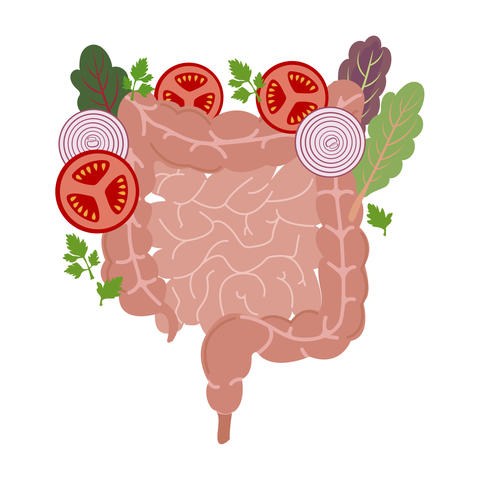Personalized elimination diet for irritable bowel syndrome (IBS)
Singh P et al, Gastroenterology. 2025;168(6):1128-1136.e4
Subjects on an IgG-guided elimination diet were more likely to achieve the primary endpoint (significant reduction of abdominal pain) than those on a sham elimination diet in a multicenter trial involving more than 200 patients. Subgroup analysis suggests a more robust benefit for subjects with constipation-predominant IBS and IBS with mixed bowel habits.
Background and aims: Personalized dietary therapies for irritable bowel syndrome (IBS) are needed and an immunoglobulin (Ig)G-antibody-based elimination diet presents a potential solution. However, existing studies have serious methodological limitations. This study aimed to assess the efficacy of an elimination diet by using a novel IBS-specific IgG assay.

Methods: The authors conducted a randomized, double-blind, sham-controlled trial enrolling subjects with IBS from 8 centers. Subjects positive for ≥ food on an 18-food IgG assay and an average daily abdominal pain intensity score between 3.0 and 7.5 on an 11.0-point scale during a 2-week run-in period were randomized to either an experimental antibody-guided diet or sham diet for 8 weeks. The primary outcome was a ≥ 30% decrease in abdominal pain intensity for ≥ 2 of the last 4 weeks of the treatment period.
Results: Among 238 randomized subjects with IBS, 223 were included in the modified intention-to-treat analysis. A significantly greater proportion of subjects in the experimental diet group met the primary outcome than those in the sham diet group (59.6% vs. 42.1%, p = 0.02). Subgroup analysis revealed that a higher proportion of subjects with constipation-predominant IBS and IBS with mixed bowel habits in the experimental diet group met the primary endpoint versus the sham group (67.1% vs. 35.8% and 66% vs. 29.5%, respectively).
Conclusions: Subjects on an IgG-guided elimination diet were more likely to achieve the primary endpoint than those on a sham elimination diet. Subgroup analysis suggests a more robust benefit for subjects with constipation-predominant IBS and IBS with mixed bowel habits. This highlights the potential effectiveness of a personalized elimination diet based on a novel IBS-specific IgG assay. A larger study is warranted to validate these observations.